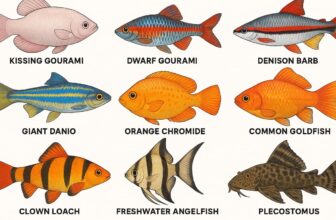When you think of countries like Germany, Japan, or India, you’re likely using names that were shaped by centuries of foreign trade, colonial history, or linguistic shortcuts. But the people living in those countries? They call them something else entirely.
Many nations have native names that are completely different from what the rest of the world calls them and these aren’t just translations. These names often reflect local language, culture, history, or even mythology. Some are ancient. Some are modern. But almost all are surprising.
Here’s a look at 11 countries whose real names, in their own language, are totally different from the ones you’ve always known.
1. Germany – Deutschland
In English, it’s Germany. But in German, the country is called Deutschland. The English name comes from the Latin “Germania,” while “Deutschland” means “land of the people” or “folk” in Old High German.
2. Japan – Nihon / Nippon
You say Japan, but locals say Nihon or Nippon, meaning “origin of the sun.” That’s why it’s often called the “Land of the Rising Sun.” The English name came through old trade routes via Portuguese and Chinese sources.
3. Greece – Hellas (Ελλάδα)
To Greeks, their homeland is Hellas, and they call themselves Hellenes. The name “Greece” comes from the Latin word “Graecia,” which was the Roman name for the region.
4. Finland – Suomi
In English, it’s Finland. In Finnish, it’s Suomi. The origin of “Suomi” is unclear, but it likely predates modern naming conventions, while “Finland” comes from Old Norse and later Latin texts.
5. Hungary – Magyarország
Hungarians refer to their country as Magyarország, which literally means “land of the Magyars” (the dominant ethnic group). The English name “Hungary” may have come from the medieval Latin term “Hungaria,” possibly linked to the Huns.
6. Egypt → Misr (مصر)
In Arabic, Egypt is known as Misr (pronounced “Masr” in Egyptian dialect). The name “Egypt” comes from the Greek “Aegyptos,” which itself was derived from an ancient name for Memphis, the first capital of unified Egypt.
7. Ivory Coast – Côte d’Ivoire
While English speakers call it Ivory Coast, the official name is Côte d’Ivoire, even in English. The country has formally requested that all languages use its French name, which translates directly to “Coast of Ivory.”
8. China – Zhōngguó (中国)
Chinese citizens call their country Zhōngguó, which means “Central Nation” or “Middle Kingdom.” The English name “China” likely originated from the Qin (pronounced “Chin”) dynasty via ancient Sanskrit texts.
9. South Korea – Hanguk (한국) / Daehan Minguk (대한민국)
Locally, South Korea is called Hanguk, or more formally Daehan Minguk (Republic of Korea). The English name reflects the division from North Korea but isn’t used by locals in everyday conversation.
10. Georgia – Sakartvelo (საქართველო)
This country in the Caucasus region is known to its citizens as Sakartvelo. The English name “Georgia” is unrelated to the native term and may have Persian or Greek roots — or possibly even religious origins linked to St. George.
11. India – Bhārat (भारत)
In India, the country is officially known as Bhārat in Hindi and several other Indian languages. The name comes from ancient texts and is linked to a legendary king, Bharata. “India” comes from the Indus River and was popularized through Greek and Persian usage.
Summary – Native Country Names You Probably Didn’t Know
These hidden native names reveal how different the world can look from the inside. What seems like a small detail a country’s name can reflect deep roots in language, tradition, identity, and self-perception.
From Deutschland to Nihon, from Suomi to Bhārat, these names are more than just words. They’re part of how people see their nation and their place in the world.
Next time you hear someone say “Japan” or “Hungary,” remember that’s not what locals say at all.





